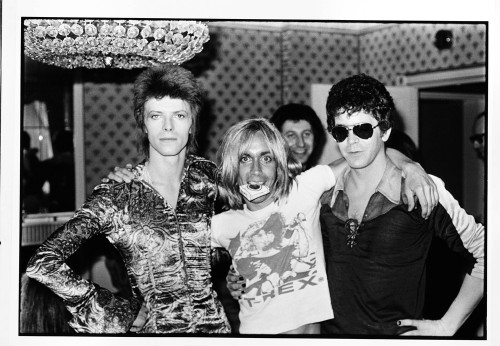In the movie version of The Perks of Being a Wallflower, the gorgeous, tortured teenagers who’ve been guiding the film’s young protagonist – another gorgeous, tortured teenager – in matters of love, identity, and music, decide to take the boy on a special trip through a Pittsburgh tunnel. A song comes on the radio, and the girl climbs out through the back window to emerge standing on the back of the flatbed truck in Leo’s “king of the world” pose at the end of the tunnel. Whereas the book can leave the actual song unnamed and universal, the film has to be specific and actually play the song. In a rare false note for the otherwise entirely truthy film, finding the mysterious song that prompted this liberating escapade becomes a matter of serious concern for our serious young protagonist, even though everybody born before 1990 will have immediately guessed it: David Bowie’s deathlessly cool “Heroes”.
What the kids recognize in Bowie’s song is obvious. “Heroes” is triumphant, a declaration of independence, of sovereignty even, and it still sounds as cool as it did back in 1977. Bowie recorded it in Berlin, a place that (inconceivably, I know) was even cooler when the Wall was still standing. He had fled to the West German enclave to flee media attention, to instead bask in the supremely uninterested German faces on the truncated U-Bahn system, and to embark on a brief fling with Romy Haag, a beautiful Dutch transsexual singer still surrounded by a coterie of tittering twinks today.
Though I’ve now lived there for over six years, I never visited that mythical West Berlin of the 1970s, but I imagine it rather like an unholy mix of the oblivious shopping mecca still kicking out West (soon with UNIQLO) and the tiresome grittiness of the former Eastern borough of Friedrichshain. Drugs and prostitution were rampant, and the tale of Christiane F. became not only a nationwide warning to ‘just say no’, but also a not-so-strange attractor to all manner of international outcasts. No wonder then that Bowie lent the German version he’d recorded of his “Heroes” to the inevitable eventual Christiane F. film soundtrack.
No wonder also then that Bowie’s similarly sexually and pharmacologically adventurous rockstar colleagues, Lou Reed and Iggy Pop, would join him in the walled city. And now we come to the raison d’être of this post: Reed’s death this week. Though Bowie’s foreign-language cred was already established long before “Helden” or “Héros” (click here if you feel like hearing Bowie strike some Schlager poses back in 1967), and Iggy has recorded songs in French, sung with Balkan gypsy orchestras, and occasionally dabbled in German, Reed’s recordings seem steadfastly monolingual. Still, at least his one-time Velvet Underground bandmate Nico – a German erstwhile model who rose to fame as one of Warhol’s tragic stars after already having appeared in a Fellini film and sung songs for Serge Gainsbourg – would supply me with endless sad sad songs to write about (“Le petit chevalier”, for instance).
Yet the one I came back to and wanted to share with you today is this very obscure (not even on YouTube! Only appearing on flexi, the original vinyl floppy disc) cover of the Velvet Underground’s sublime “All Tomorrow’s Parties” by Kendra Smith from 1981. Even despite the rather strange German this has been translated into for no other discernable reason than that language’s inherent cool, the disaffected Teutonics enhance the song’s dirginess to a delightful degree.
And not just that, Reed’s lyrics are also sorta semi-topical; what costume shall the poor girl wear indeed. Happy belated Hallowe’en!

